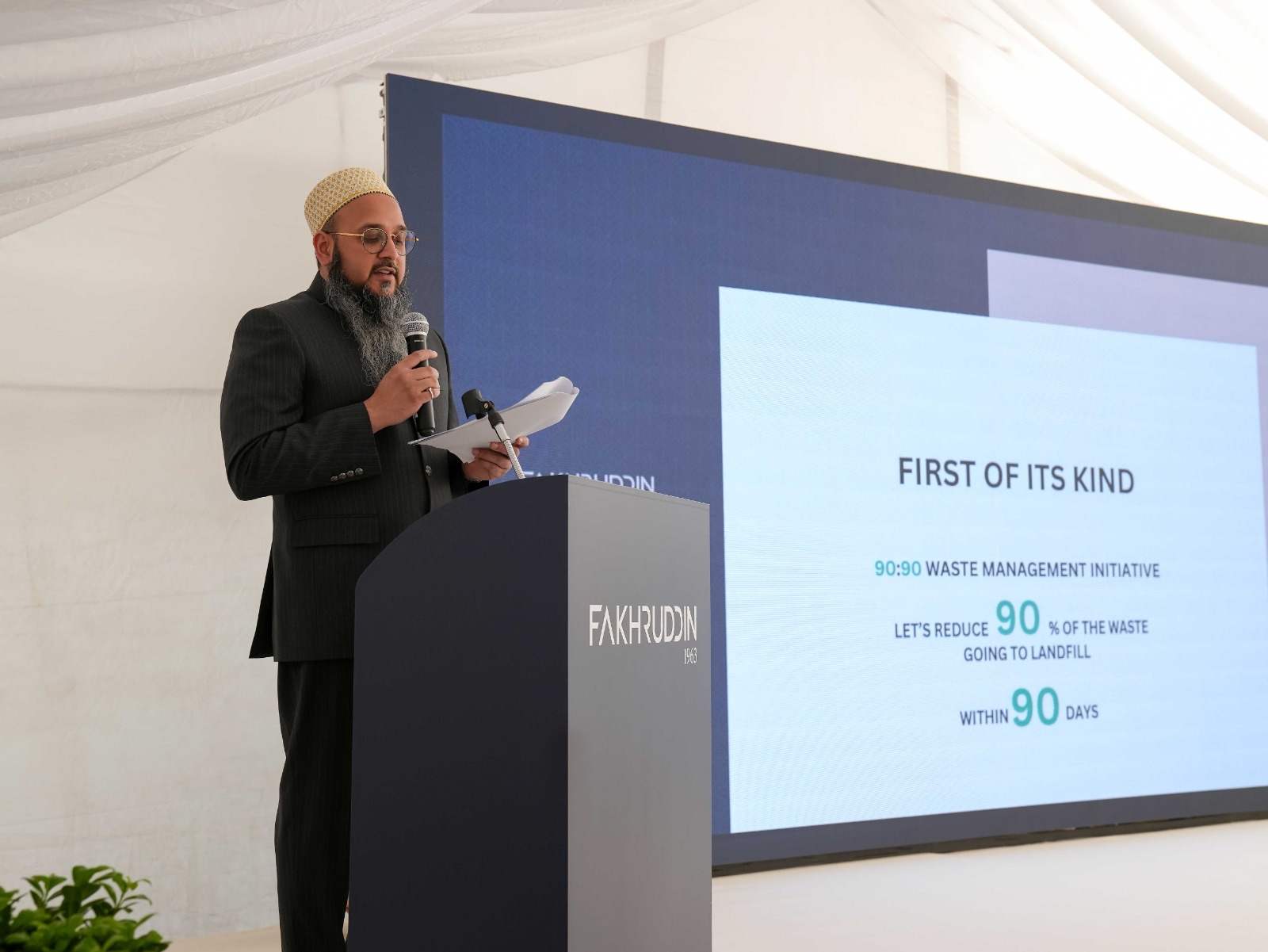Dubai,THENFAPost: In a stride towards transforming urban sustainability, Fakhruddin Properties has launched its breakthrough “90:90 Waste Management Initiative,” a pioneering model that aims to divert up to 90% of building waste from landfills. The forward-thinking system was unveiled on May 7th, 2025, at Trafalgar Central in Dubai International City, and introduces the city’s first in-building composting and sorting facilities in a residential development marking a remarkable milestone in the UAE’s environmental journey.
With an unwavering focus on sustainable innovation, the initiative presents an end-to-end framework for high-rise buildings, offering seamless source segregation, reporting, and zero-cost implementation for residents. This model not only redefines waste handling within residential and commercial complexes but also aligns strategically with the UAE’s Net Zero 2050 agenda, Dubai Municipality’s plan to see the landfills in the emirate closed by 2027, and the Circular Economy Policy 2021–2031.

The system’s foundation relies on active community engagement, behavioural change, and sophisticated infrastructure. Residents will be empowered with color-coded garbage bags, one for organic waste and another for general waste, and this will be reinforced through ongoing educational campaigns and visually intuitive signage. The on-site segregation allows for efficient and clean collection ensuring that only 10% of waste reaches landfills all within a resident-centric basis that does not burden tenants or homeowners with any additional operational or infrastructure costs.
“Our objective was clear to create an adaptable, scalable, and zero-cost waste management model that has measurable environmental, social, and economic impact,” stated Yousuf Fakhruddin, CEO and Managing Partner of Fakhruddin Properties. “With this initiative, we are demonstrating that sustainability is not an afterthought, but it is an essential how modern cities must evolve. Our in-building composting solution proves that advanced waste infrastructure can be integrated into residential life without disrupting it. In fact, it enhances it by improving air quality, promoting responsible living, and contributing to a greener economy. We are not merely managing waste; we are redefining what it means to live sustainably in Dubai.”

As part of the May 7th launch, attendees witnessed live demonstrations of the system’s full lifecycle from waste disposal by residents to compost generation. The event also featured discussions led by urban sustainability experts, exploring how cities can adopt similar plug-and-play models to meet climate targets and reduce environmental harm.
Dr. Samiullah Khan, Chief Sustainability Officer of Fakhruddin Holdings, emphasized the broader significance of the initiative. “The 90:90 standard represents a paradigm shift in how we tackle waste no longer as a liability, but as a resource. Our commitment goes far beyond compliance; it’s a moral obligation to future generations. We have created a blueprint that integrates sustainability into the core fabric of urban living, scalable across the real estate sector. This is not a pilot; it is the future. We connect citizen participation, cutting-edge technology, and transparent governance to drive real-time impact and build climate-resilient cities.
With growing regional and global urgency to rethink environmental strategies, Fakhruddin Properties’ initiative emerges as a timely and transformative solution. The 90:90 Waste Management Initiative is set to become a benchmark in urban sustainability in order to build greener, cleaner, and smarter communities across Dubai and beyond. The outstanding event was attended by special guests including His Royal Excellency Prince Saud bin Abdul Aziz bin Saud; Mr. Mohammad bin Hammad, Head of Real Estate Relations Management at the Real Estate Regulatory Agency (RERA); Her Excellency Laila El Atfani, President & Founder of Business Gate and Woman Business Circle; as well as dignitaries from the Dubai Land Department, RERA, Dubai Municipality, and the Ministry of Climate Change and Environment.
















